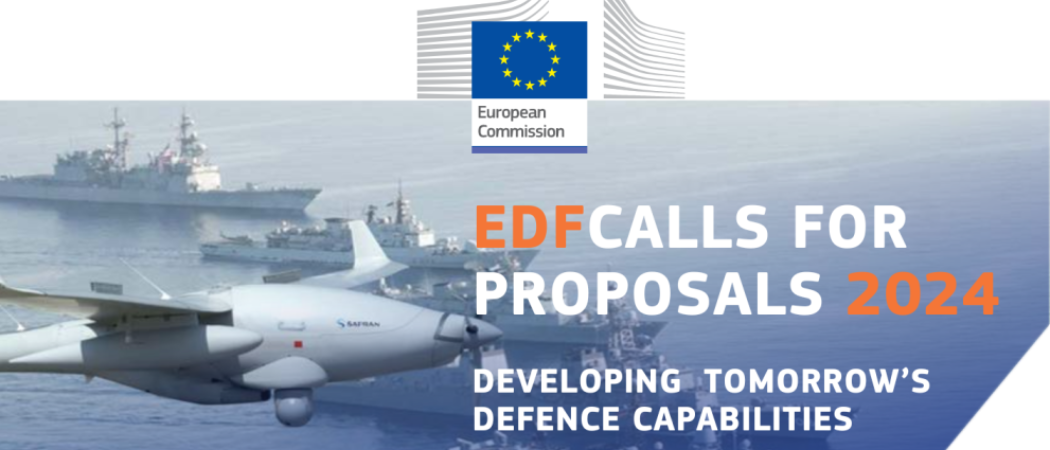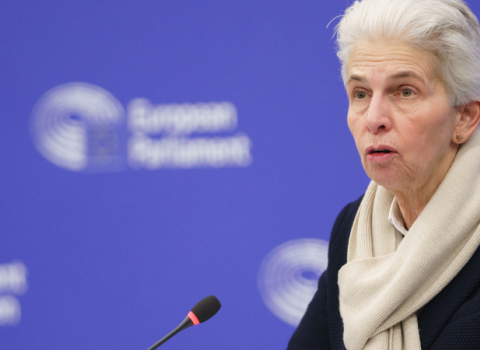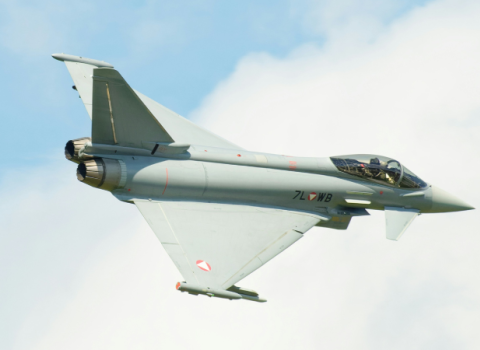Companies have until November to apply to take part in projects ranging from unmanned aircraft to secure space communications

Photo credits: European Union
The European Defence Fund (EDF) has opened 2024 calls worth €1.1 billion, slightly down from €1.2 billion in 2023. Industry has until 5 November 2024 to put together consortia and submit proposals.
Consortia applying for EDF grants must consist of partners from at least three member states or Norway, although calls for disruptive technologies only require partners from two countries. The EU will be hosting information days to discuss the calls in Brussels and online, on 28-29 May.
This is the fourth round of calls for EDF, which was set up in 2021 to strengthen cross-border collaboration on military R&D and boost Europe’s strategic autonomy. It features six thematic calls and two calls dedicated to SMEs, covering 32 topics in total.
The largest amount of funding, €181 million, is for work on information superiority, which aims to gain a competitive advantage by collecting, processing and sharing information faster than adversaries. This is closely followed by air combat at €150 million and ground combat €130 million. That reflects a shift towards conventional warfare capabilities as the war in Ukraine drags on, and includes intelligent weaponry and ammunition systems, and a next-generation armoured infantry fighting vehicle.
One of the two largest single calls, at €100 million, is to develop a next-generation helicopter, with current helicopter fleets expected to need replacing between 2035-2040.
“After decades of European involvement in counter-insurgency type of operations, recent conflicts have marked the return of high-intensity confrontations very close to EU territory, recalling that although military helicopters are key assets, they require careful mission planning and operations to be efficient and survivable,” the call says.
“On the longer term, rotorcraft is foreseen to be even more critical as future combat theatres are likely to take place in congested urban environments, mostly in littoral regions, and to involve a wide range of long-range strike capabilities.”
An equivalent budget will fund at least one proposal for an unmanned aircraft which it is envisaged will play a key role in intelligence, surveillance, target acquisition and reconnaissance. This will contribute to EU sovereignty, given the existing systems mostly rely on non-EU manufacturers.
Other topics include quantum technologies, electronic components and systems to counter hypersonic weapons.
€40 million will go to energy-independent and energy-efficient systems for military camps. This reflects not only the EU’s climate objectives, but also the move away from oil-powered systems. “The future battlefield is likely to be dominated by weapon systems, platforms and devices that require electric energy,” the call says.
The 2024 work programme also includes €225 million for the EU Defence Innovation Scheme (EUDIS), a subset of the EDF which provides support to companies in bringing their ideas to defence end users.
There are open, non-thematic calls for SMEs, and cascade funding for start-ups, including those not previously active in the defence sector, to adapt simulation technologies for defence applications.
Other EUDIS-funded activities include annual hackathons and business coaching. In addition, in 2024 there will be a EUDIS business accelerator and matchmaking event with investors, with a call for tender due to be published this spring.
The proposed EDF budget was originally €13 billion for 2021-2027, but it was cut to €8 billion because of the COVID-19 pandemic.
An additional €1.5 billion was allocated to EDF as part of the Strategic Technologies for Europe Platform (STEP). However, this is set to be transferred to the Commission’s proposed European Defence Industry Programme.





 A unique international forum for public research organisations and companies to connect their external engagement with strategic interests around their R&D system.
A unique international forum for public research organisations and companies to connect their external engagement with strategic interests around their R&D system.